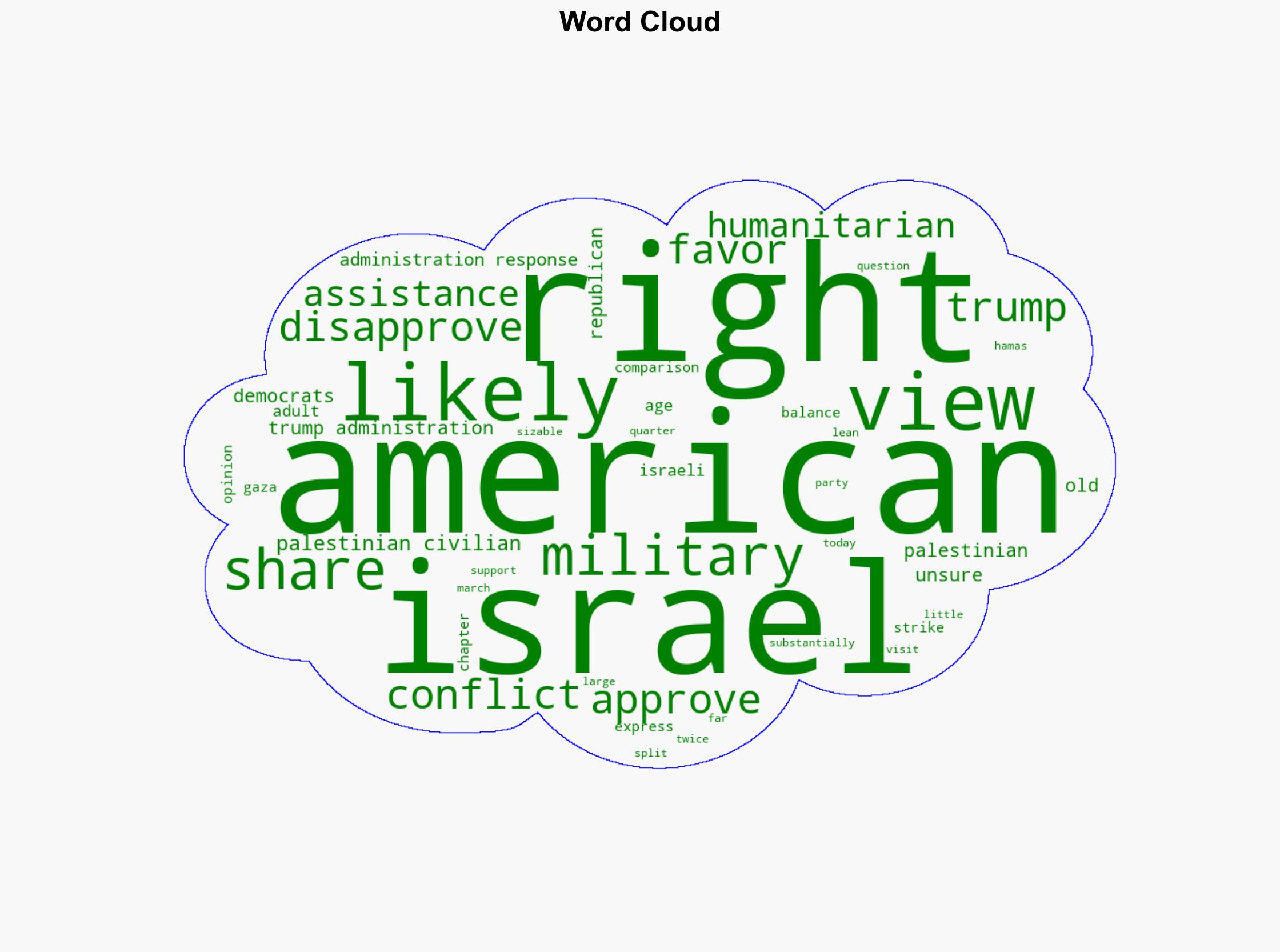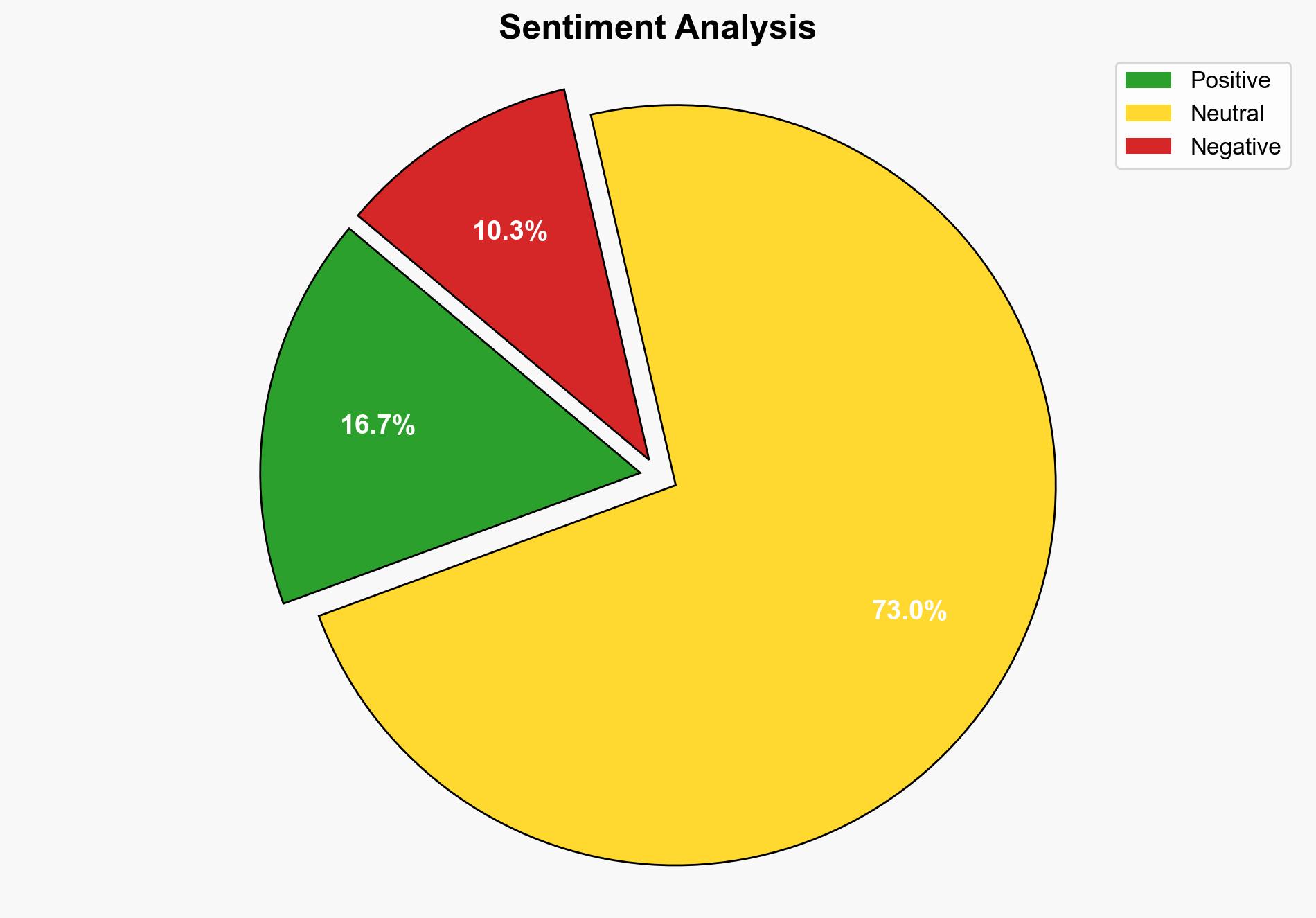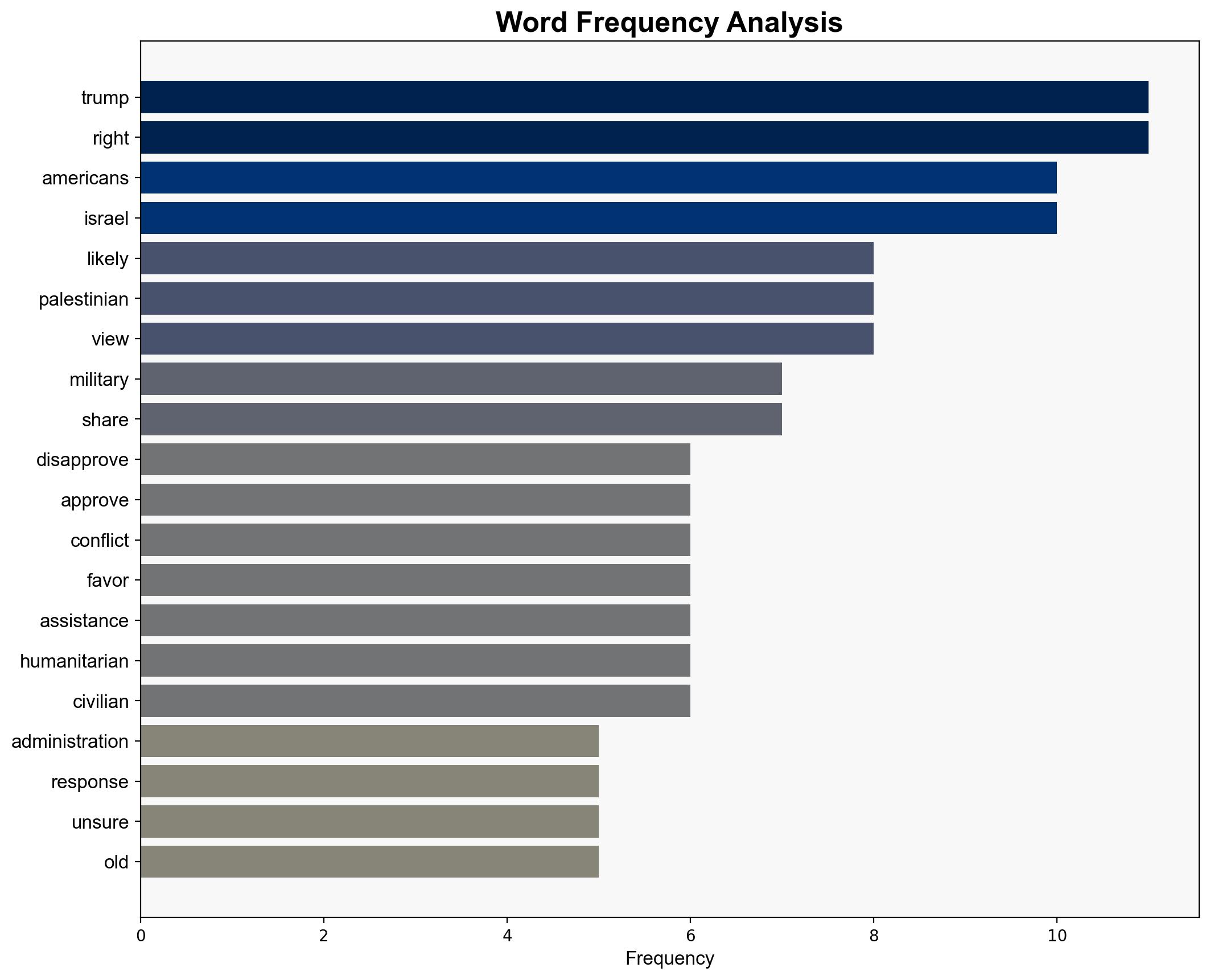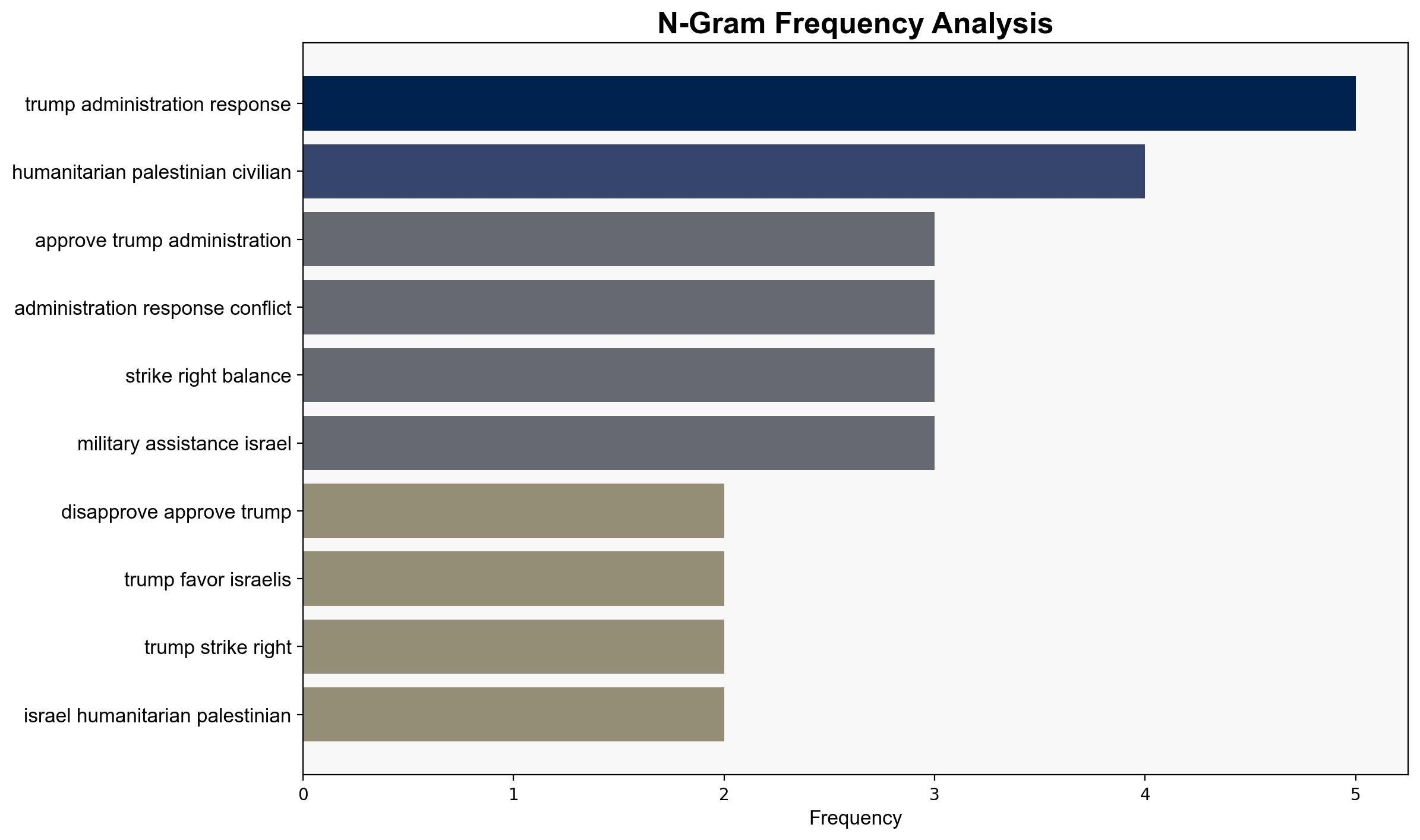1 Views of the Trump administrations response to the Israel-Hamas conflict – Pew Research Center
Published on: 2025-10-03
Intelligence Report: 1 Views of the Trump administrations response to the Israel-Hamas conflict – Pew Research Center
1. BLUF (Bottom Line Up Front)
The analysis indicates a divided American public opinion on the Trump administration’s response to the Israel-Hamas conflict, with significant partisan and age-related differences. The hypothesis that the administration’s response is perceived as favoring Israel is better supported. Confidence level: Moderate. Recommended action: Engage in diplomatic efforts to address public concerns and clarify policy intentions to improve domestic and international perceptions.
2. Competing Hypotheses
1. **Hypothesis A**: The Trump administration’s response is perceived as favoring Israel, leading to significant disapproval among Democrats and younger Americans.
2. **Hypothesis B**: The Trump administration’s response is perceived as balanced, but public opinion is polarized due to partisan biases and lack of information.
Using ACH 2.0, Hypothesis A is better supported due to the higher disapproval rates among Democrats and younger demographics, as well as the perception that Trump favors Israel over Palestinians.
3. Key Assumptions and Red Flags
– **Assumptions**: Public opinion is accurately captured by the survey; partisan and age-related differences are significant factors.
– **Red Flags**: Potential bias in survey methodology; lack of clarity on what constitutes “right balance” in policy.
– **Blind Spots**: Limited insight into the views of independent voters and those with no strong partisan affiliation.
4. Implications and Strategic Risks
– **Geopolitical Risks**: Perceived favoritism towards Israel could strain U.S. relations with Middle Eastern countries and impact peace negotiations.
– **Domestic Risks**: Polarization may deepen, affecting domestic cohesion and political stability.
– **Psychological Risks**: Public disillusionment with foreign policy could lead to decreased trust in government.
5. Recommendations and Outlook
- **Mitigation**: Increase transparency in foreign policy decisions and engage in bipartisan dialogue to address public concerns.
- **Exploitation**: Use diplomatic channels to reinforce U.S. commitment to a balanced approach in the Middle East.
- **Scenario Projections**:
– **Best Case**: Improved public perception and strengthened international alliances.
– **Worst Case**: Escalation of regional tensions and increased domestic polarization.
– **Most Likely**: Continued division in public opinion with gradual policy adjustments.
6. Key Individuals and Entities
– Donald Trump
– Republican and Democratic Party members
7. Thematic Tags
national security threats, geopolitical strategy, public opinion, Middle East policy




